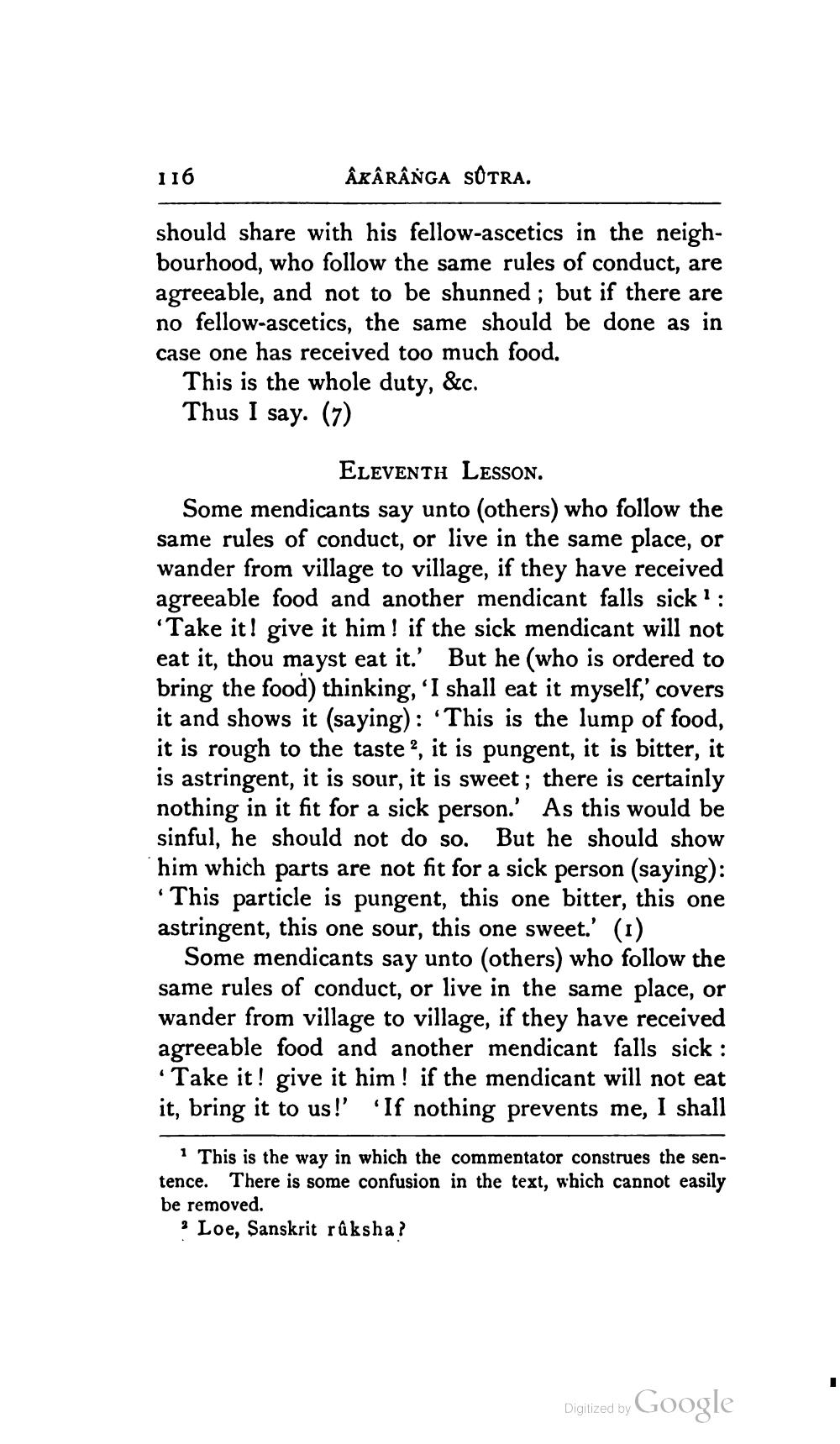________________
116
ÂKÂRÂNGA SÚTRA.
should share with his fellow-ascetics in the neighbourhood, who follow the same rules of conduct, are agreeable, and not to be shunned; but if there are no fellow-ascetics, the same should be done as in case one has received too much food.
This is the whole duty, &c. Thus I say. (7)
ELEVENTH LESSON. Some mendicants say unto (others) who follow the same rules of conduct, or live in the same place, or wander from village to village, if they have received agreeable food and another mendicant falls sick ? : 'Take it! give it him! if the sick mendicant will not eat it, thou mayst eat it.' But he (who is ordered to bring the food) thinking, 'I shall eat it myself,' covers it and shows it (saying): ‘This is the lump of food, it is rough to the taste ?, it is pungent, it is bitter, it is astringent, it is sour, it is sweet; there is certainly nothing in it fit for a sick person.' As this would be sinful, he should not do so. But he should show him which parts are not fit for a sick person (saying): * This particle is pungent, this one bitter, this one astringent, this one sour, this one sweet.' (1)
Some mendicants say unto (others) who follow the same rules of conduct, or live in the same place, or wander from village to village, if they have received agreeable food and another mendicant falls sick : *Take it! give it him ! if the mendicant will not eat it, bring it to us!' 'If nothing prevents me, I shall
1 This is the way in which the commentator construes the sentence. There is some confusion in the text, which cannot easily be removed.
? Loe, Sanskrit rûksha?
Digitized by Google




